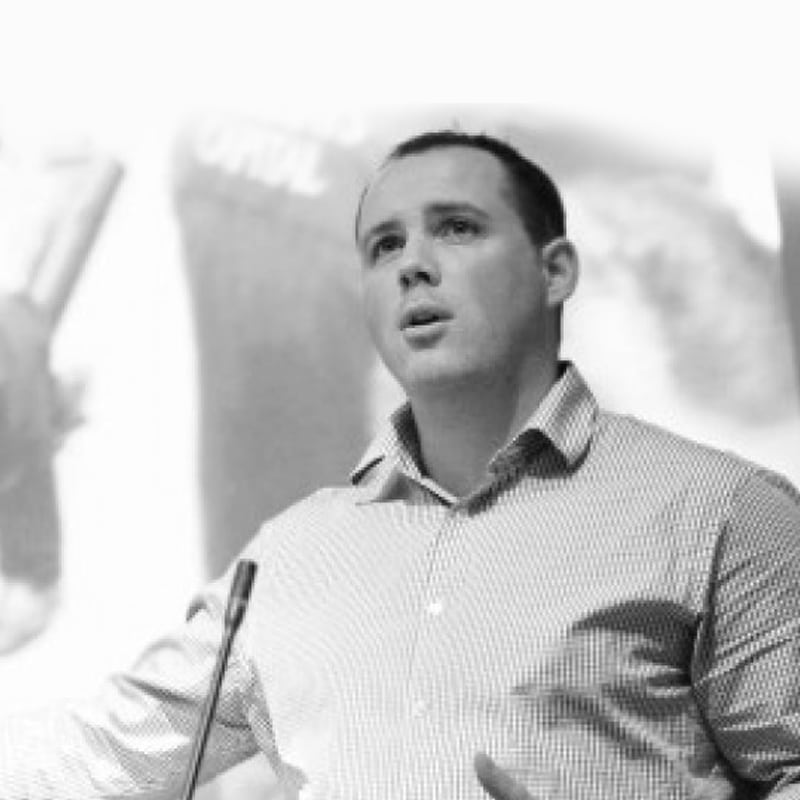
#22
Lessons from a global performance expert
Fergus Connolly
Dr. Fergus Connolly (@Fergus_Connolly) is one of the world’s foremost human performance thought leaders and influencers.
Author of the bestselling book “Game Changer – The Art of Sports Science“, Fergus has applied performance science with leading sports, military, and business teams. He is the only coach to have full times roles in every major sport, including soccer (Liverpool, Bolton Wanderers), professional and college football (San Francisco 49ers and University of Michigan), rugby (Welsh national team) and elite military units.
In this conversation we explore the keys to good coaching, how to build successful teams and much much more. I hope you enjoy.
Subscribe
Find the show on your favourite player
Summary
1:27 Introducing Fergus and his major accomplishments
2:10 Tips for the Corona virus lockdown
- Finding a routine
- Identifying what is important each day
- Learning to switch off
4:15 Fergus’s early education
- Following in his father’s footsteps as a woodworking teacher
6:09 Advanced education
- How his graduate degrees in manufacturing and computer optimization influenced his work
- The benefits of getting outside his comfort zone
- How sport combines people skills with technical skills
8:15 The human/technology balance in sport
- The new tendency towards analysis and structure
- “It’s not about maximizing everything”: the importance of knowing when a systems approach is necessary
10:32 The GAA
- Growing up in Monaghan and Scotstown in the 80s
- The role of the GAA in Irish society: to “teach young people lessons for life”
- Its universal appeal and value
- Fergus’s childhood memories of the GAA
14:25 First steps in sports performance
- Saving money to visit coaches
- Getting the call from Bolton
16:03 Different sports in different countries
- “You’re always dealing with people”
- The similarities between sports from physical, psychological, tactical and skill perspectives
17:25 Dublin GAA
- Coaching remotely with Jim Gavin
- What impressed him about Jim’s work with the under 21s
- Building a team with Jim: “There was a complete absence of ego”
21:42 Jim Gavin’s legacy
- What Fergus admired about Jim: he was humble, honest, knew when to come for help, and worked hard
- The personal sacrifices Jim made for the benefit of the team
- What might be lost without him
- How good leaders create leaders within their team
26:10 The Liverpool team
- Working as a performance consultant with Liverpool
- Liverpool’s legacy and culture: “I didn’t see them being able to turn it round”
- What they need in terms of leadership
- Jürgen Klopp’s strengths
28:45 The keys to good coaching
- The best teachers and the best coaches teach you how to learn
- “You’re solving problems together”
30:55 Creating good teams
- Defining sustainable success
- Aligning the professional, personal, and purposeful
33:39 Influencing without coaching
- Creating the right environment
- Leading by example
- Making the right things easy and the wrong things hard
- How to create habits and instincts to prepare for high-pressure situations
37:43 Coaching as plant-growing
- “We’re not all the same”
- Being careful about not writing someone off: his first impressions of Suarez
40:10 Failure
- Failure as a prerequisite to success
- Fergus’s recent burnout and its consequences
- Reaching out to friends in the military
- The key: never giving up
- Clive Woodward’s lesson: treating winning and losing the same way
- Practising analysis without emotional involvement
44:33 Soft skills
- The importance of listening skills, including listening to how you speak to yourself
- The Irish as good communicators
- Bernard Dunn’s strengths
46:55 Coaching and data
- Understanding the limitations of data when dealing with people
- Never forgetting about one’s own expertise as a coach when looking at data
50:40 Corona lockdown
- How this lockdown is an opportunity to learn more about yourself
- The importance of setting goals, sticking to a routine, and making time for yourself
52:57 Training
- The advantages of training alone or with a group
54:00 Burnout
- Fergus’s DUI in 2008
- His mistake: not asking for help
- Fergus’s unsustainable work and sleep schedule
- Understanding that there is a limit to what can be done
1:00:00 Injury
- Why modifying training is better than taking a player out of play entirely
- The importance of putting the person first
1:03:02 Professional academies
- The limitations of data-driven training
- Eddie Jones’s coaching vision
1:04:54 DaVinci as role model
- Sports as a combination of science and artistry
1:06:57 US military
- How decision-making and problem-solving are facilitated in the military
- Empowering people to lead
1:09:10 Sports performance myths
- Myths about injury, fitness, psychology and skill
1:11:08 Working with the NFL
- Fergus’s approach to problem-solving
- How trying to solve a problem can create more problems
1:13:09 Resilience
- How to move on from mistakes and failure
1:15:33 Postponed sports events
- Using this time off as a training opportunity
- How to handle adversity: “Don’t be a victim”
1:17:39 Rapid-fire questions
- Alternative career choice: Doctor
- Current curiosity: Happiness
- Best advice: Get comfortable being uncomfortable
Further Resources
More about Fergus Connolly’s work on his website www.fergusconnolly.com
Ted Talk: Leadership, Authenticity and Sheepdogs: https://www.ted.com/talks/fergus_connolly_leadership_vulnerability_and_sheep_dogs